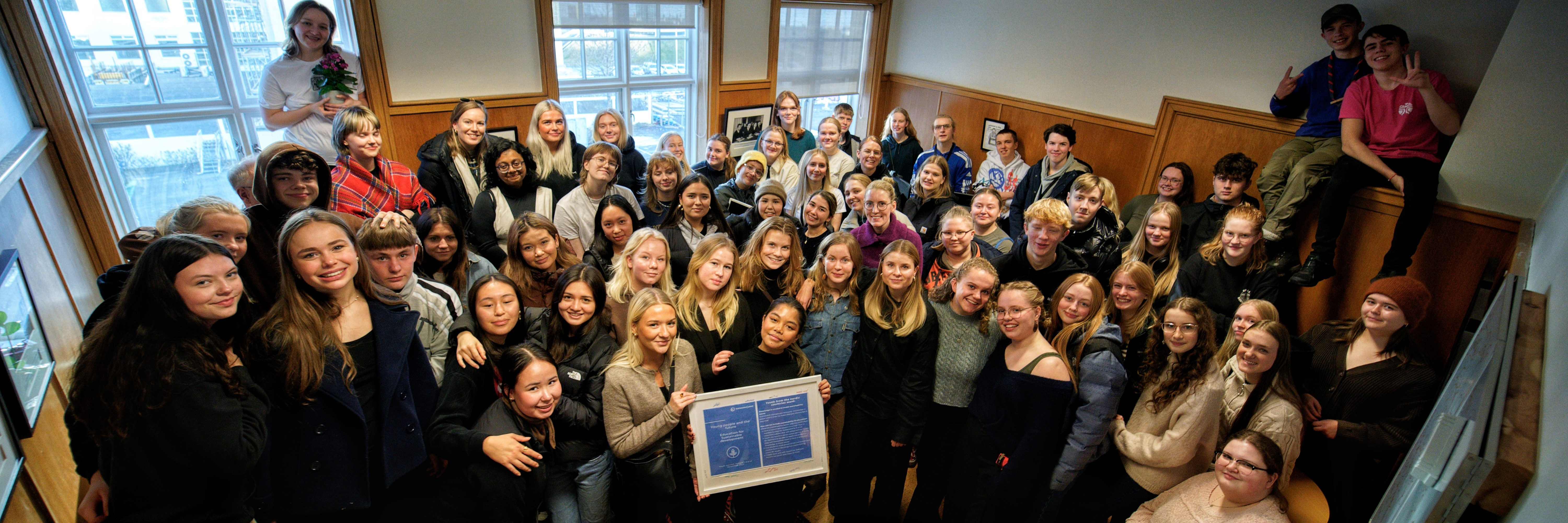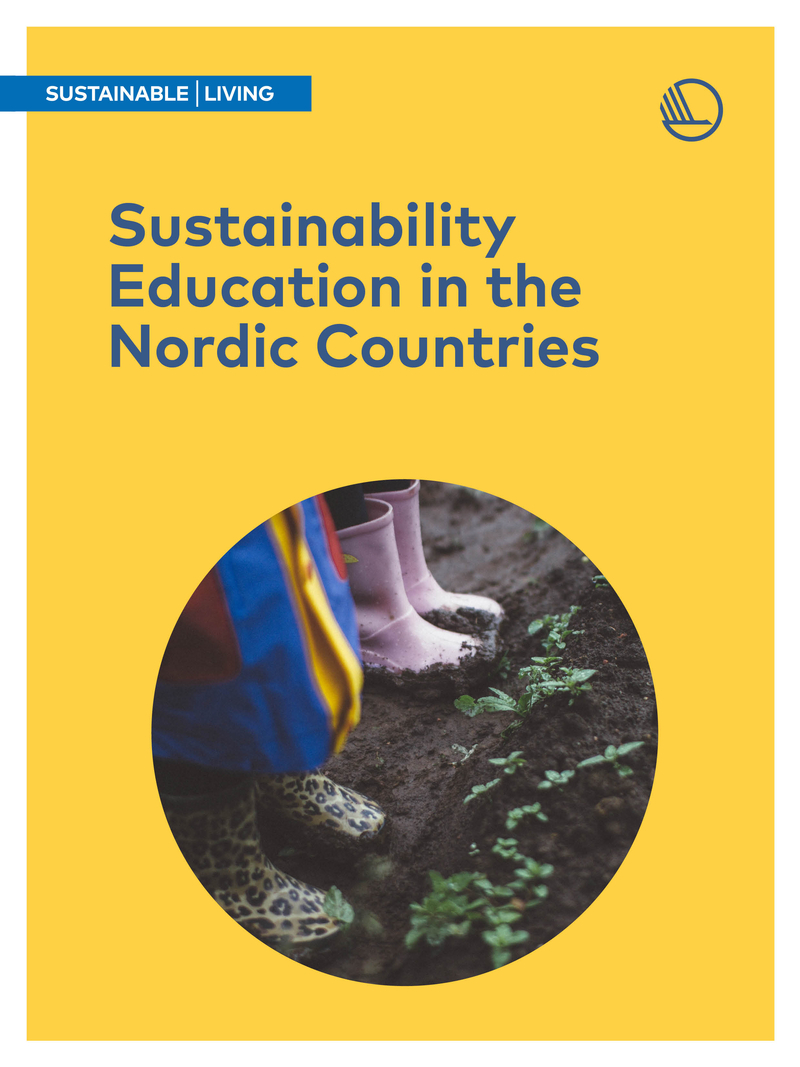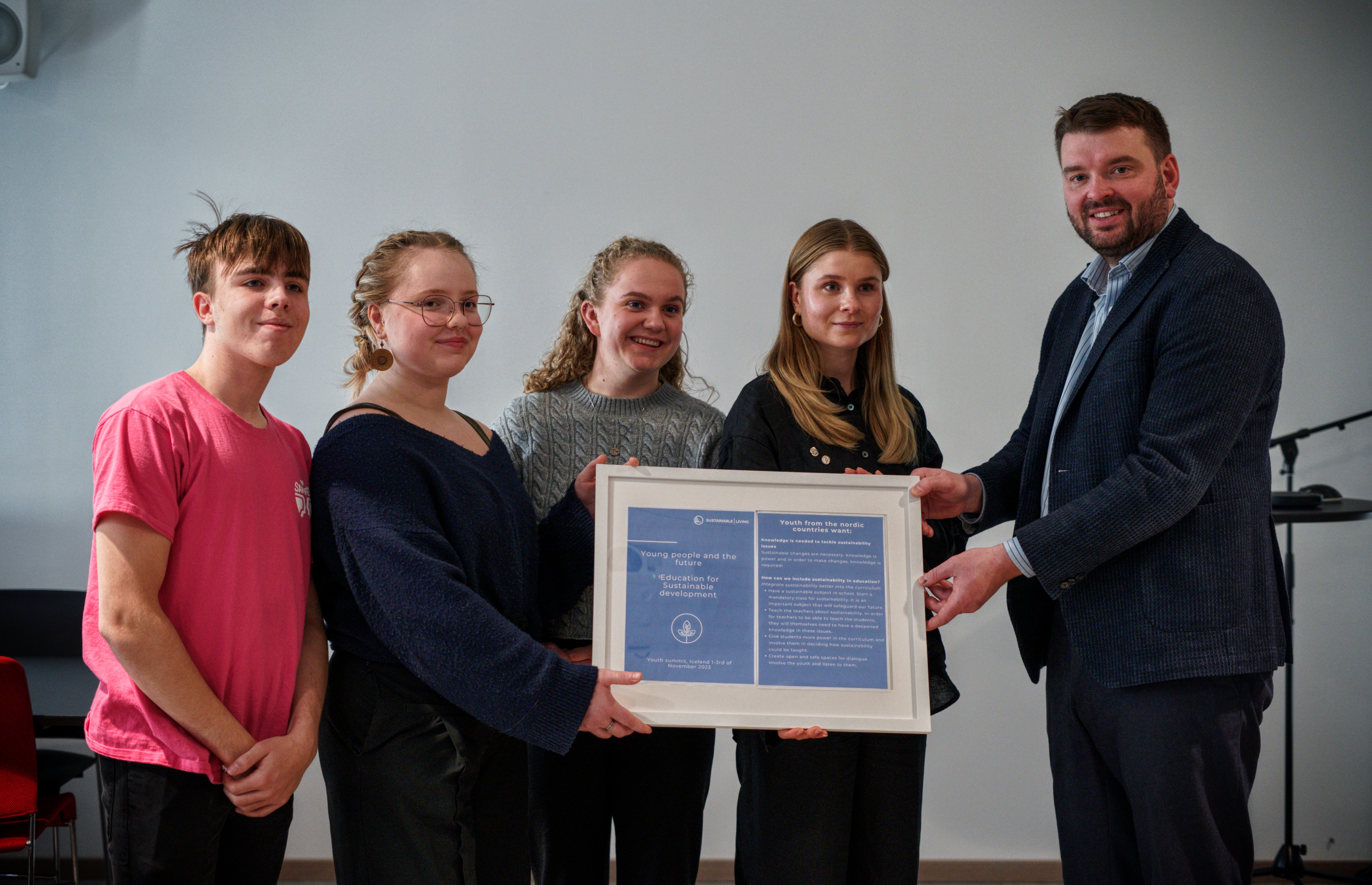
Education for Sustainable Development
The Education for Sustainable Development project aimed to integrate sustainability into education for all ages. It targeted teachers at all educational levels across the Nordic Region, including the five Nordic countries and three autonomous areas.
The focus included integrating sustainability into teacher education curricula and creating professional development resources for current teachers. Young people were also given a voice through a dedicated platform. A cooperation network of educational authorities, teacher education institutions, teachers’ and students' unions, the Nordic Network for Adult Learning (NVL), and other experts facilitated this integration.
"When I teach sustainability I focus on getting the students to think about sustainability, and what they themselves can do for a better world."
– Swedish teacher
Key outputs
The project documented policy aspects and teacher education and conducted a critical study on education’s role in transitioning to sustainable living by surveying teachers’ views and practices on sustainability.
In adult education, the NVL created a network to promote motivation and pedagogical methods for a sustainable future, developing a Nordic model for promoting sustainable lifestyles. Several meetings were held within the project framework, including a conference about the future of the teacher role and a youth conference where over 70 young people outlined essential steps for a sustainable future and how they want it addressed in education.
The project used various methods, including collaboration among Nordic stakeholders and analysis of previous research. It conducted the first large-scale digital survey of educational practices concerning sustainability across the Nordic countries. The findings were presented at different events to ensure result dissemination. The project has also included a youth conference, to include young people and their voices in the process.
"When I teach sustainability I focus on individuality and my message (to the students) is that small actions can have a greater impact."
– Finnish teacher
Policy recommendations
Based on the project's findings, recommendations is provided for different educational levels, ranging from suggestions and positive examples for practitioners, to recommendations for educational authorities about support, teacher education and training, and policy changes.
How can we include sustainability in education and integrate sustainability better into the curriculum? Youth from the nordic countries want:
- A sustainable subject in school. Start a mandatory class for sustainability. It is an important subject that will safeguard our future.
- Sustainability training for teachers. In order for teachers to be able to teach the students, they will themselves need to have a deepened knowledge in these issues.
- More power in the curriculum and involvement in deciding how sustainability could be taught.
- Open and safe spaces for dialogue. Involve the youth and listen to them.
Future directions
Sustainability education is an ongoing process which must be evaluated and reevaluated at each moment. By providing an evaluation of current state of affairs, the project stablishes a base line for action while, at the same time, contributing to methodology for responsible action in the field of sustainability education.
Resources
- Young People and the Future. (2023). The results of the Youth Conference, Education for Sustainable Development.
- Nordic Network for Adult Education. (n.d.). Development of educational models for sustainable lifestyles.

